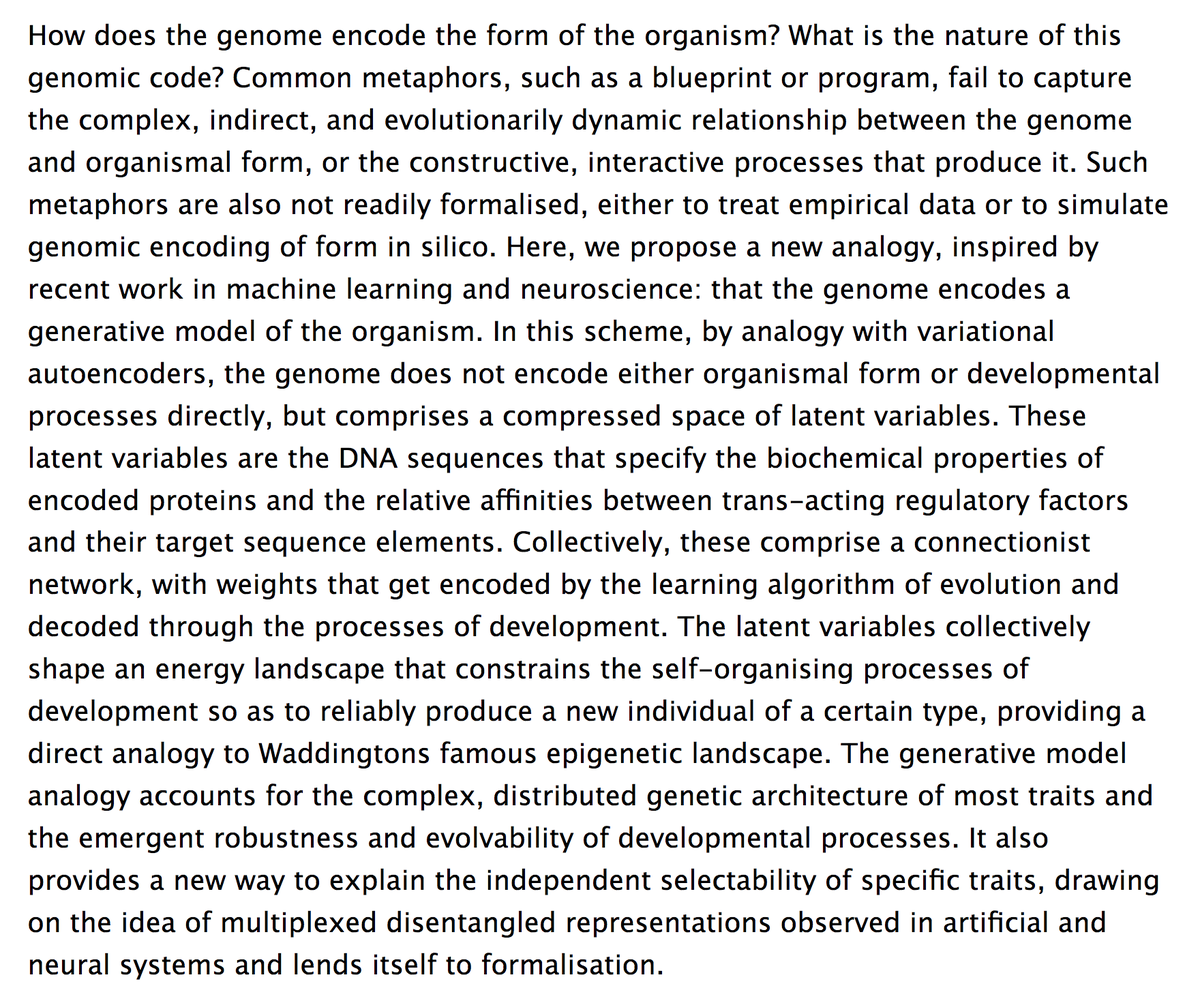
Neurogeneticist interested in the relations between genes, brains, and minds. Author of INNATE (2018), FREE AGENTS (2023). https://t.co/PdgAxi6myV
8 subscribers
How to get URL link on X (Twitter) App


 In which we consider how best to conceptualise the role of the genome in specifying the form of the organism. In other words, how it is that cats have kittens and dogs have puppies.
In which we consider how best to conceptualise the role of the genome in specifying the form of the organism. In other words, how it is that cats have kittens and dogs have puppies. 

 In neuroscience, our search for the causes of behavior is often just = a search for the underlying neural mechanisms. Especially when we can use tools like optogenetics to show some activity is "necessary and sufficient" for that behavior to occur
In neuroscience, our search for the causes of behavior is often just = a search for the underlying neural mechanisms. Especially when we can use tools like optogenetics to show some activity is "necessary and sufficient" for that behavior to occur


https://twitter.com/WiringTheBrain/status/1694391227725001061The concept of “representations” offers a crucial bridge between brain and mind – a way for physical (patterns of neural activity) to manifest as mental; for organisms to be able to *think about things*. 2/13
https://twitter.com/Nancy_Kanwisher/status/1621654738314973184My own view is that, as with many such arguments, this may become (or already be) overly dichotomised...


https://twitter.com/RotoRub/status/1612412100734849027This talk touched on so many interesting topics! (Unfortunately not recorded but I guess you can dive in to @ehab_abouheif 's published work for more info)...




 The Hsp90 protein helps other proteins to fold properly, even if they carry some mutations in their amino acid sequence. It therefore buffers the effects of such mutations...
The Hsp90 protein helps other proteins to fold properly, even if they carry some mutations in their amino acid sequence. It therefore buffers the effects of such mutations...


 This paper challenges the requirement for activity-dependent refinement of neural circuits in order to get normal function...
This paper challenges the requirement for activity-dependent refinement of neural circuits in order to get normal function...
